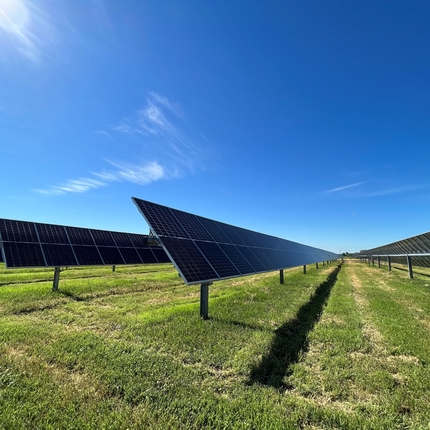By Lindsay Mouw, former staff member
This summer, headlines suggested that rolling blackouts across the country may be possible because of predicted above-average temperatures.
Texas-based grid operator, the Electric Reliability Council of Texas (ERCOT), and the Midcontinent Independent System Operator (MISO) projected energy capacity shortfalls during peak summer temperatures.
Similar to the ERCOT blackouts in February 2021, much of the blame for this shortfall has been unduly placed on renewable energy.
However, as heat waves swept across the country, ERCOT and MISO did not experience strain on the grid as anticipated. In fact, renewable energy improved the electric grid’s reliability during these hot summer days.
Analysts examined data from the eight hottest days in June in Minnesota, North Dakota, and Iowa. The data shows wind provided the most energy and generated more than 50% of the day’s energy for five of the days examined, topping out at 64% on June 19. Additionally, if solar capacity equaled wind capacity, it would have generated enough electricity to displace significant amounts of fossil fuels.
Similarly, renewables also came to the aid of Texas’ grid. Solar has been performing exceedingly well, setting records for energy production all summer. According to ERCOT, during the week of July 20, solar power generated 9% more energy at midday than anticipated. Typically when air conditioning demand is straining the grid, solar is performing well, matching that demand. According to an expert, ERCOT was within 2.5 gigawatts from being at outages, but having an additional 4 to 5 gigawatts of solar made the difference between forced rolling blackouts and keeping the lights on.
Renewable energy expansion can further bolster the grid but is hindered by a lack of grid investment. We urge state and federal policymakers to work together on solutions that would create new capacity, such as battery storage and transmission development, allowing for diverse generation sources to increase grid reliability.





